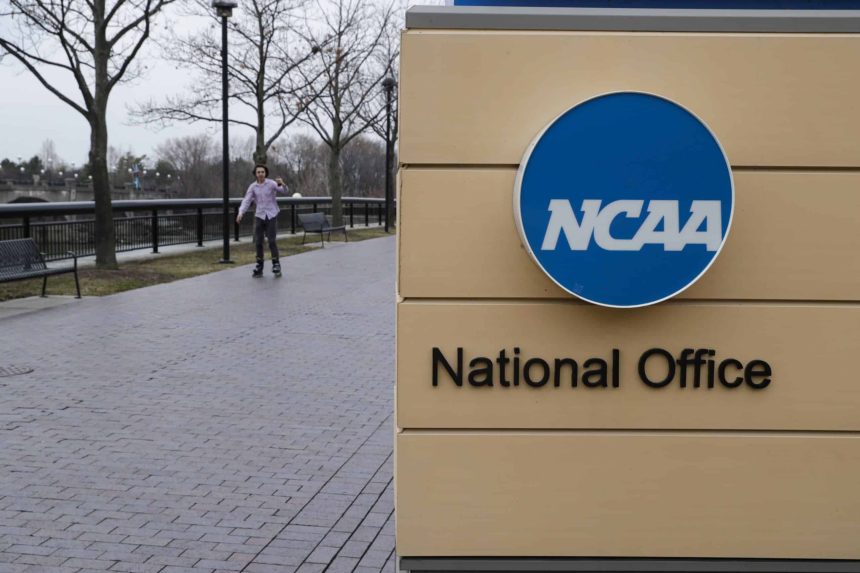Two Republican congressmen introduced a bill Wednesday that would provide the NCAA, college conferences and member schools with federal protection from legal challenges that stand in the way of their ability to govern college sports.
The Protect the Ball Act is sponsored by Reps. Russell Fry of South Carolina and Barry Moore of Alabama and is intended to provide legal safe harbor for the entities that run college sports, which has been under siege from antitrust lawsuits. Fry and Moore are members of the House Judiciary Committee.

The NCAA and Power Four conferences are considering a settlement agreement that could cost billions. House vs. the NCAA seeks damages for college athletes who were denied the right to make money from sponsorship and endorsement deals going back to 2016, five years before the NCAA lifted its ban on name, image and likeness compensation.
Almost as problematic for the NCAA are recent lawsuits filed by states that attack some of the association’s most basic rules related to recruiting inducements and multiple-time transfers.
The Protect the Ball Act would give the NCAA protection from litigation and allow the association and conferences to regulate things like recruiting, eligibility standards and the way college athletes are compensated for name, image and likeness.
“NIL rules are ever-changing, heavily litigated and essentially unenforceable — causing confusion and chaos for everyone involved,” Fry said. “We must establish a liability shield on the national level to protect schools, student-athletes and conferences as they navigate this new set of circumstances. This legislation is an integral component of saving college sports as we know it.”
College sports leaders have been asking Congress for several years for help in regulating how athletes can be paid for NIL, though NCAA President Charlie Baker and others have shifted the emphasis recently to preventing college athletes from being deemed employees.
The lawsuit settlement being considered would create a revenue-sharing system for college athletes, but the NCAA and conferences would still need help from federal lawmakers to shield them from future lawsuits and possibly to create a special status for college athletes.
“It is imperative we reach a uniform standard of rules around competition soon and I’m really pleased to see that our congressional engagement efforts are being heard and action is being taken,” said former Oklahoma State softball player Morgyn Wynne, who has served as co-chair of the NCAA’s Student-Athlete Advisory Committee.
At least seven bills have been introduced — some merely as discussion drafts — by lawmakers in both the House and Senate since 2020, but none has gained any traction.
The Protect the Ball Act is a narrow bill intended to support broader legislation that would create a national standard for NIL compensation in college sports.







